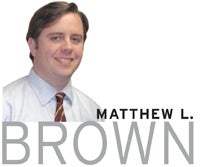When we at the WBJ hear about government regulation, it’s usually not spoken of in nice ways.
But I met with an area CEO recently who is actually hoping that California’s strict diesel emissions laws come to Massachusetts.
The CEO was Peter C. Bransfield. He runs Rypos, a Holliston-based designer, developer and manufacturer of self-cleaning diesel exhaust particulate filters. The private company nestled at one end of the quiet Hopping Brook Industrial Park sells its filters hand over fist in California, but hasn’t sold a single one in Massachusetts.
States’ Rights
That’s because Massachusetts isn’t as strict as California when it comes to diesel particulate emissions and has no real enforcement mechanism in place to become stricter. Instead, the state follows U.S. Environmental Protection Agency guidelines.
But consider this: There are literally hundreds of thousands of 18-wheel refrigerator trucks currently on American roads, and they aren’t just propelled by diesel engines. The refrigerated trailers are cooled by them as well. And the small diesel engines used to run the refrigeration equipment often belch more particulate emissions into the air than those powering the trucks themselves.
Or think about the thousands of generators on standby at manufacturing, government, military, public safety and hospital facilities around the country. They’re all diesel-powered, too.
These are examples of Rypos’ smallest and largest applications. The technology Rypos uses to filter out those emissions is the same no matter the size of the application.
The company, which only started shipping its filters to customers in 2008, has been developing its filtration technology for the last 12 years. The 25-employee company was started with $1.8 million from its founders, $4 million in angel investment and $1.2 million in government grants. It expects to bring in revenue of $6.9 million and turn a profit this year.
At first glance, the filters made by Rypos don’t really look that different from those you’d find under the hood of your car. But the design and the materials used to manufacture the filters are so ingenious that the company had to also design some of the equipment used to make them.
Although the filter elements used by Rypos look like ordinary air filters used in automobiles, they’re actually made of metal. Under a microscope, the filters look like a thick web of millions of metal wires that have been pressed together.
The flat, narrow filter elements are pleated using a machine Rypos invented and then placed in metal cylinders of varying sizes. Depending upon the application, Rypos will stack the cylinders within metal housings to fit the amount of particulate matter being emitted from a given diesel engine. When I visited the company, a filter system that used 19 of the company’s largest filters was being assembled for use on a massive generator set.
Within the filter housings are electronics, also invented by Rypos, that sense when the filters become dirty and use electrical currents, rather than exhaust gas, to clean the dirty filters.
Using electricity makes the Rypos system cleaner and more efficient than exhaust gas systems.
Bransfield said the company manufactures its products with materials from New England suppliers almost exclusively. But until Massachusetts adopts tougher diesel emissions regulations, it’ll be an uphill battle for Rypos to raise a flag in the state. For now, the company is trying to get its filters on the 22 diesel generator sets at MBTA stations around the eastern part of the state and is watching other cleanup initiatives very closely.
Watch as Peter Bransfield, CEO of Rypos in Holliston, discusses the diesel particulate filters designed and manufactured by the company.
Watch as a Rypos-designed machine pleats the metal filters manufactured by the company.

